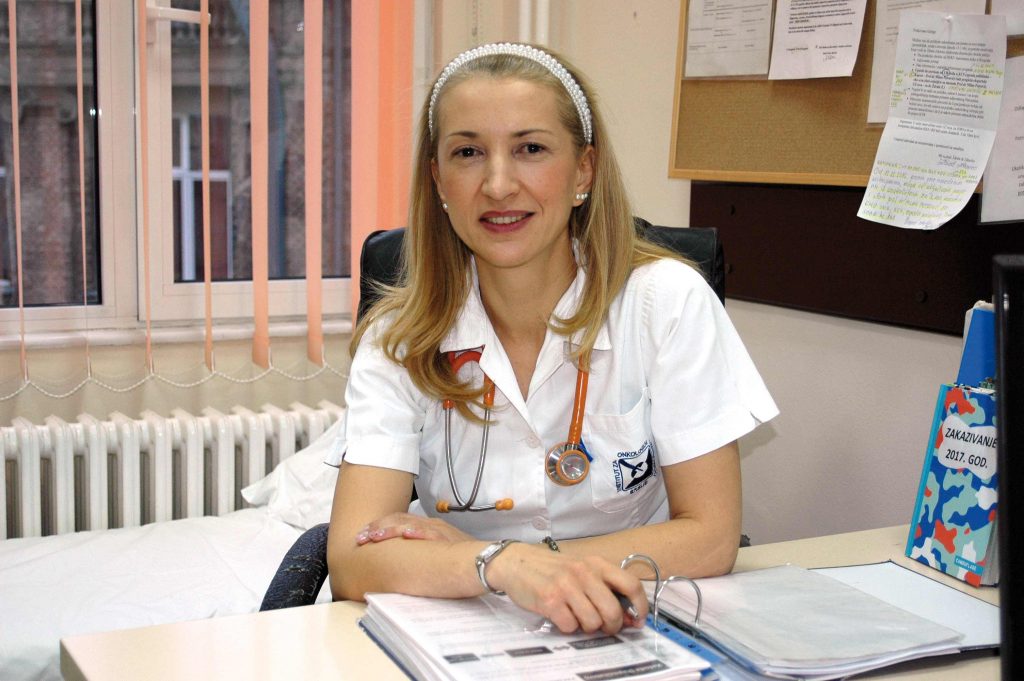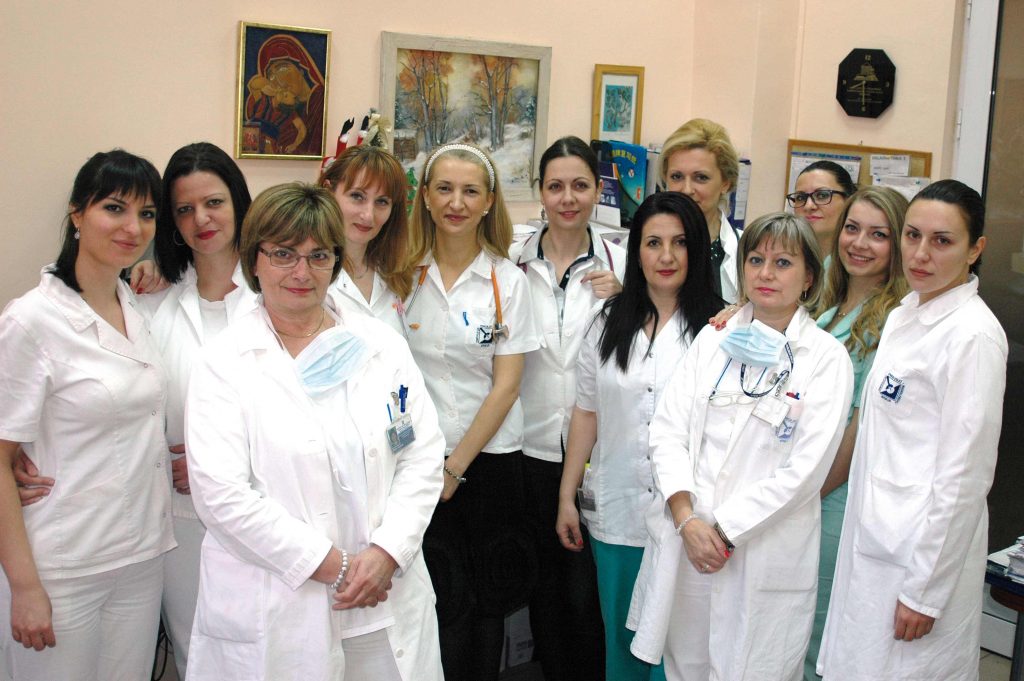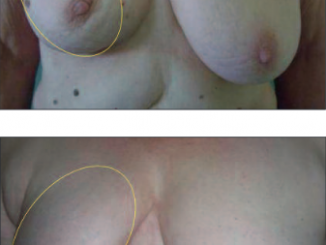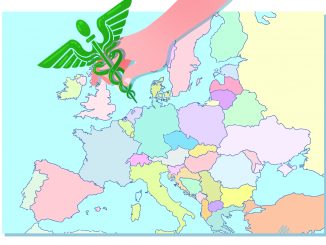A chance to work at the heart of the trailblazing MINDACT trial gave Ivana Božović-Spasojević a memorable lesson in the value of international academic trials, and the logistics of how to run them. She spoke to Anna Rouillard about her efforts to use what she learnt to ramp up academic research efforts in her own country.
If you ever feel overburdened by the demands of your job, then maybe you can spare a thought for Ivana Božović-Spasojević. A consultant medical oncologist, she is part of the most overstretched cancer workforce in Europe, based as she is in Belgrade. According to Eurostat, Serbia has fewer than one cancer professional per 100,000 population – one third the ratio in Poland, and one seventh that in Sweden.
As if this were not workload enough, she is leading efforts to develop Serbia’s academic cancer research capacity. She is setting up a Serbian Breast Group, connected with other research organisations in Europe and North America, with the aim to better connect with other academic groups in the region.
 She is herself principal investigator in a number of academic trials. These include the POSITIVE trial, run by the International Breast Cancer Study Group (IBCSG), and an international trial on male breast cancer, sponsored by the European Organisation for Research and Treatment of Cancer (EORTC), which is looking to characterise the biology and evolution of male breast cancer, which accounts for less than 1% of all breast cancers diagnosed worldwide.
She is herself principal investigator in a number of academic trials. These include the POSITIVE trial, run by the International Breast Cancer Study Group (IBCSG), and an international trial on male breast cancer, sponsored by the European Organisation for Research and Treatment of Cancer (EORTC), which is looking to characterise the biology and evolution of male breast cancer, which accounts for less than 1% of all breast cancers diagnosed worldwide.
Based in the Breast and Gynaecology Oncology ward of the Institute for Oncology and Radiology of Serbia, one of four cancer centres in the country, Božović is adamant that oncologists in Serbia need to get involved in large international trials and initiatives – not least because of the increasing number of commercial trials being run in the country over the past 15–20 years.
“Having sponsored trials in Serbia is on the one hand positive, since it means that patients get access to expensive drugs for free, but on the other hand, these trials sometimes have questionable trial design, and results are sometimes misreported,” she says.
Physicians are not involved in the conception, planning or design of sponsored trials, nor in the reporting of results, adds Božović, who argues that it is vital to have an equal partnership between academia and pharmaceutical companies.
“I got to understand the different challenges researchers face,
be they medical, logistical or legislative”
Academic research is also essential for its own sake, she says, to find answers to critical questions that are important to patients, but which hold no commercial interest. Male breast cancer, a very rare cancer, is a good example.
“I have been working in my institute for 15 years, and in total I’ve seen maybe 80 or 100 cases of male breast cancer. The number is too small for research. But if you collect a large number of patients willing to participate in academic research that is conducted by international collaborations, over a small period of time you are going to have big data,” she says.
The POSITIVE trial, led by Olivia Pagani, is another example of a trial with scant commercial interest. POSITIVE is designed to answer questions about whether it is safe for women with early breast cancer to interrupt endocrine therapy for two years to have a child.
“This is not something pharmaceutical companies are going to be interested in researching, but it’s really a hot topic,” says Božović. Young female cancer patients always have questions about their fertility. They want to know how safe it is to get pregnant, and we need big, prospective, robust data in order to advise them properly.”
Educated at the Bordet
Serbia suffered a massive brain drain during and after the Balkans war, leaving the country perilously low on healthcare practitioners. Today, with salary levels of around €800 a month, qualified young oncologists continue to leave for western Europe and the US, “where they have better opportunities and conditions,” says Božović. “For older physicians, getting a research grant gives them a chance to work in better conditions and do high quality research. But young doctors are leaving the country in droves.”
Her own career path into oncology was slightly unusual, starting in 2001 with a spell doing research in clinical pharmacology at the Belgrade national cancer research centre, where she still works. This was made possible by a postgraduate scholarship awarded by the Serbian Ministry of Health for outstanding academic achievement.
There she had the chance to work with Zora Neškovic, a leading breast oncologist and academic researcher. “She sparked my enthusiasm for academic research,” says Božović. “Professor Neškovic was PI for many academic trials in Serbia led by EORTC and IBCSG, and she paved the way for the breast cancer research we do here today.”
In 2009, Božović was herself enticed to leave the country, when an opportunity arose to work as a clinical research fellow at the Jules Bordet Institute in Brussels, under the supervision of Martine Piccart and Fatima Cardoso.
It turned out to be the perfect time and place. In her first year of training she was involved in one of the great pioneering translational trials in personalised medicine, the MINDACT trial, which prospectively evaluated gene profiling as a tool for identifying which women with early breast cancer can safely forego adjuvant chemotherapy.
“The MINDACT trial was the most interesting trial I have ever worked on,” says Božović. “Through this experience I got to understand the different challenges researchers face, be they medical, logistical or legislative. The results were published in the New England Journal of Medicine last year, and it was a real privilege to be listed as a collaborator.”
Božović’s clinical research fellowship was extended, and one year turned into three when she shifted to the Breast Data Centre as a medical advisor for ALTTO and neo-ALTTO – two large multinational trials that compared two anti-HER2 targeted therapies with different mechanisms of action, used separately or in combination, in the adjuvant and neoadjuvant setting for early breast cancer treatment.
Building capacity in Belgrade
Božović came back to Belgrade in 2012 and has drawn on her experience in Brussels to help build up academic cancer research in her own country. Her own institute, the Institute for Oncology and Radiology of Serbia (IORS), is already an international cancer research centre, with high-quality laboratories and a data centre capable of handling translational research, but as Božović says, it is hard to make progress in isolation. “On our own, we are too small to do science. Science costs money. So we need to be part of big academic networks.”
Inspired by BIG (the Brussels-based Breast International Group), she created the Serbian Breast Group, an informal set-up within the IORS, which she intends to develop so as to increase Serbia’s engagement in international collaborative research in breast cancer.

The Serbian Breast Group is already part of EORTC and the International Breast Cancer Study Group, but Božović’s goal is for it to become part of other research organisations such as BIG. “Being part of a recognised and reputable research group is very important, because of the learning opportunities that open up when you work with experts who are at the top of their field.”
“What I am really thinking about is a model similar to the one in Brussels. We need to attract young people to work exclusively in research for several years while receiving a grant. It’s a win–win situation: they will learn how to do clinical and translational research – how to formulate important research questions and design and conduct trials – and we will benefit from their help.”
She is a strong proponent of gaining experience abroad, and feels that a critical mass of people who go abroad and then come back is needed. “Going abroad makes young people see what it is possible to deliver. Education is so important. You are exposed to different ways of doing things and can then do things better yourself.”
She concedes, however, that the conditions they can offer in Belgrade are a long way from what she experienced in Brussels. “I may be PI for several academic trials, but I still have to take care of many things by myself, including administrative tasks. I hope one day to have a well staffed organisation like BIG, and a breast data centre, where skilled and well trained people have their own roles in the research structure.”
“My great wish is to expand academic research
in Serbia and the region and to motivate young people
to be involved in it”
That said, Božović is highly aware that the challenge of finding time for research is by no means unique to Serbia. “The problem in academic research is that, as a clinician, you never have dedicated time for it. And this is true everywhere. It is just that in Serbia, given how overloaded we are, you really need to fight to have any time for research at all.”
Serbia has a long history of collaboration with France when it comes to oncology. Many of the country’s most famous physicians and prestigious opinion leaders were educated there and, in the past, oncology students spent several months in Paris through an initiative with the French embassy. Today there is ongoing collaboration in clinical research between Paris’ Tenon Hospital and the Institut Curie and the National Cancer Research Centre in Belgrade, which Božović hopes will lead to Serbian physicians being able to study in France.
‘I can change things’
Božović is a member of the oncology working group within the Serbian Ministry of Health, which last year published its cancer plan. It is based on the French cancer plan, but transposed for the financial situation of Serbia, and has prevention and screening as its major focus.
“In general, Serbians do quite a lot of sport, our diet is reasonably good, but, just like other countries in the Balkan region, the majority of people smoke. Some restaurants ban smoking, but these rules are useless when you see that the smoke free room is connected to the smoking room!”
“Programmes are in place for breast, cervical and colorectal cancer screening. But screening is not having the effect it should have, because awareness of cancer is painfully low and, even if we do have the equipment for mammographies, there are too few radiation oncologists to read the mammograms.”
The incidence of breast cancer is around average for European countries. However, Serbia is second highest for breast cancer mortality, according to 2014 data. “This is because screening is not working well enough,” Božović explains, “and breast cancer is locally advanced in 30–40% of patients, which is a huge number.”
Based on EUSOMA guidelines, Serbia is accrediting hospitals that can give high quality breast cancer treatment. “Due to the centralised system of care here, some patients have to travel up to 200 km to be treated. We are trying to address this by ensuring some of the smaller hospitals offer high quality care. These hospitals may not be able to be involved in clinical trials, but at least there will be more options for patients to be treated.”
One of the great achievements has been the establishment of medical oncology as a subspecialty and a clinical oncology curriculum for medical students.
For Božović, education is key to the future of cancer care in Serbia. “Sometimes I think I am too ambitious, but I really do think that, together with my experienced and enthusiastic colleagues, I can change things. My great wish is to expand academic cancer research in Serbia and the region and to motivate young people be more involved in it. They are smart, they work hard and they are eager to learn. When you get them together in a team, and you educate them, maybe send them abroad for some time, you will have a fantastic team. This is my goal and I hope I’m going to realise it.”






Leave a Reply